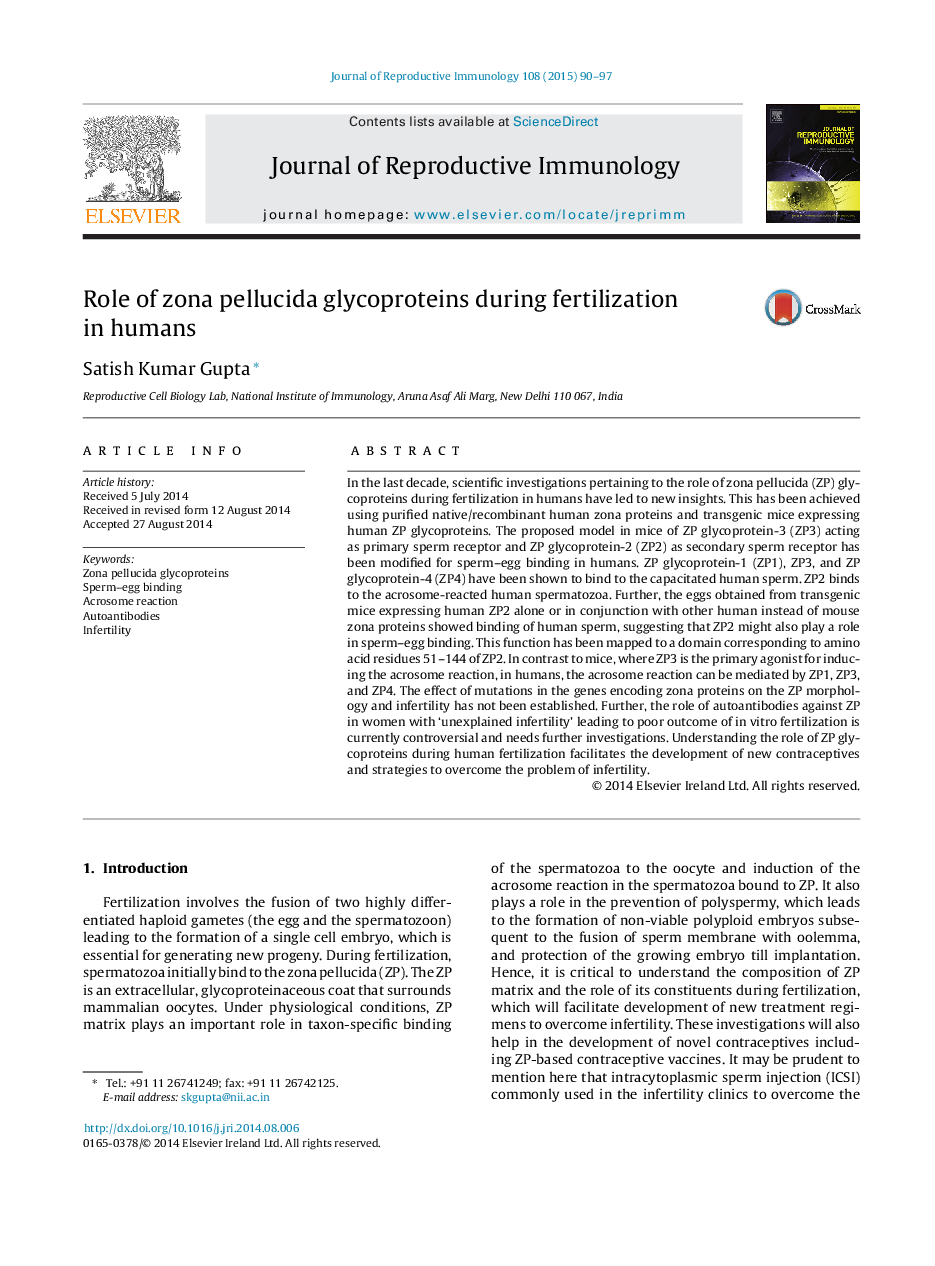| کد مقاله | کد نشریه | سال انتشار | مقاله انگلیسی | نسخه تمام متن |
|---|---|---|---|---|
| 3964590 | 1600704 | 2015 | 8 صفحه PDF | دانلود رایگان |

• In humans, all four zona pellucida glycoproteins are involved in sperm–egg binding.
• In humans, in addition to ZP3, ZP1 and ZP4 also mediate the acrosome reaction.
• Cleavage of ZP2 is critical for the avoidance of polyspermy during fertilization.
• Autoantibodies against ZP in women may have an adverse outcome on IVF.
In the last decade, scientific investigations pertaining to the role of zona pellucida (ZP) glycoproteins during fertilization in humans have led to new insights. This has been achieved using purified native/recombinant human zona proteins and transgenic mice expressing human ZP glycoproteins. The proposed model in mice of ZP glycoprotein-3 (ZP3) acting as primary sperm receptor and ZP glycoprotein-2 (ZP2) as secondary sperm receptor has been modified for sperm–egg binding in humans. ZP glycoprotein-1 (ZP1), ZP3, and ZP glycoprotein-4 (ZP4) have been shown to bind to the capacitated human sperm. ZP2 binds to the acrosome-reacted human spermatozoa. Further, the eggs obtained from transgenic mice expressing human ZP2 alone or in conjunction with other human instead of mouse zona proteins showed binding of human sperm, suggesting that ZP2 might also play a role in sperm–egg binding. This function has been mapped to a domain corresponding to amino acid residues 51–144 of ZP2. In contrast to mice, where ZP3 is the primary agonist for inducing the acrosome reaction, in humans, the acrosome reaction can be mediated by ZP1, ZP3, and ZP4. The effect of mutations in the genes encoding zona proteins on the ZP morphology and infertility has not been established. Further, the role of autoantibodies against ZP in women with ‘unexplained infertility’ leading to poor outcome of in vitro fertilization is currently controversial and needs further investigations. Understanding the role of ZP glycoproteins during human fertilization facilitates the development of new contraceptives and strategies to overcome the problem of infertility.
Journal: Journal of Reproductive Immunology - Volume 108, April 2015, Pages 90–97